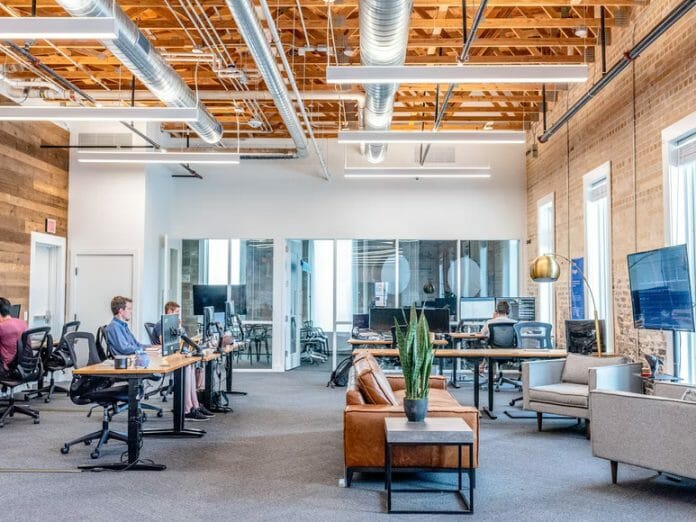By Stephanie Ping, Co-founder and CEO of WORQ
Smart capital allocation is critical for all businesses, but it is even more pertinent in the risky world of startups, where the wrong money move might spell the death of your company. Startups are typically capital-strapped, with the primary challenge being to maintain their cost structure as minimal as possible.
In 2019-2020, a mere USD $362 million (RM1. 51 billion) was invested in Malaysian startups, a number dwarfed by Indonesia’s USD $5.63 billion and Singapore’s USD $1.47 billion. This is poised to only get worse as we look towards a potential recession and a fundraising slowdown for startups across the world, underlining the need for more companies, not just startups, to focus on smart capital allocation decisions that help ensure their long-term viability.
As technology advances at a rapid pace and global economies slowly recover, the growth of startups and businesses will only continue to accelerate. According to HSBC Navigator: Southeast Asia (SEA) in Focus, foreign companies in China (41%), India (29%), and the United States (24%) are looking to prioritise growth in Malaysia over the next two years as the economy recovers.
Companies must plan ahead, examine their personal positions and management strengths, and consider how they can successfully scale their companies in a sustainable way. Without a clear direction, any attempt to expand might backfire and cause companies to slow growth down, emphasising the importance of being cost-effective and cost-efficient in order to shift from survival mode to growth mode.
The traditional office does not work today
The pandemic has revolutionised the real estate landscape and introduced new challenges to the spotlight. While most employees want to return to work, most only want to come in two or three days a week, meaning that employees need less space than in the past because it is doubtful that everyone will want to come in on the same day. More companies have begun to recognise and adjust to this shift. Salesforce and Airbnb, for example, have drastically reduced the quantity of office space they rent. Salesforce now expects more than 65% of its workers to work only one to three days per week, up from 40% before the pandemic.
Coworking spaces are popular among companies of all shapes and sizes, primarily because they are seen to help them optimise their cash flow. Flexible offices are viewed as spaces that may be optimised by eliminating the need to purchase and maintain fixed assets. Reduction in upfront costs is one of the main benefits that motivate many companies to seek out coworking spaces.
The role of coworking spaces in the growth of companies
Investing in a coworking space rather than traditional offices has therefore become a popular and appealing business strategy for a wide range of businesses of all sizes. Startups and small and medium-sized companies that want to grow their operations should follow in the footsteps of larger organisations since they will no longer have to worry about burning cash on a risky asset with a low return on investment. For example, Airbnb liquidated an additional 287,000 square feet at its San Francisco headquarters in May 2021, bringing the total downsizing of its real estate to more than 424,000 square feet.
Many people expected that coworking would lose its attraction indefinitely because people would no longer feel secure working in a shared space. However, it appears that coworking spaces such as WORQ will grow in popularity, not only as a desirable choice for companies but also as a less expensive solution to the problem of space scarcity. By choosing a coworking space, companies may devote more of their capital to other elements of their operations, such as research and development, and less to real estate and other large asset expenditures.
There will also be instances when companies must reduce their workforce owing to new competitors entering the market, governmental changes, or other factors. If this occurs, they will have empty spaces and desks, which translates to a waste of resources. By utilising a coworking space, employers can only pay for the space they need, rather than the whole headcount of their staff, allowing companies to occupy a modernised office on a per-seat basis, but also to expand as required, downsize, or even leave the workspace – which can prove to be an important advantage for companies of all sizes.
The concept of coworking spaces extends beyond coworking. Employees should not have to worry about the hassles connected with static work locations – they should not spend hours driving to work, getting trapped in traffic jams from the suburbs to the city centre. Instead, they should be able to drive for considerably less time or travel to a location that is easily accessible by public transportation or is within a reasonable distance of their houses.
The future of work: efficiency and effectiveness
There are numerous advantages to having a coworking space, including the ability for existing businesses to use it as a launch pad to test and scale their business model. It is important to note that coworking spaces are ideal for startups, businesses, and working professionals who require an office space where they can collaborate and work on various projects.
The idea of companies having access to coworking spaces is that it will help them scale and achieve their business goals by allowing them to collaborate with other startups and working professionals. As a result, it is a more efficient way for companies to access resources and connect with people who can assist them with the scalability of their companies, providing them with new options for business continuity and business sustainability.









